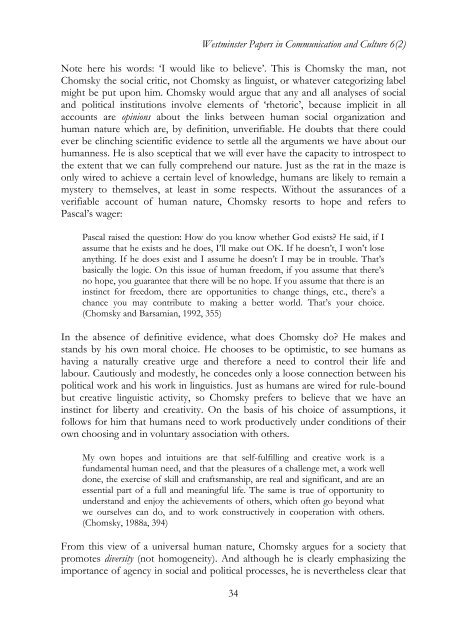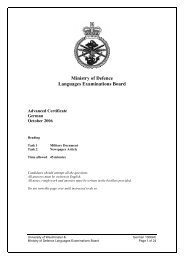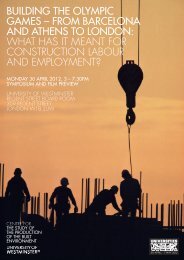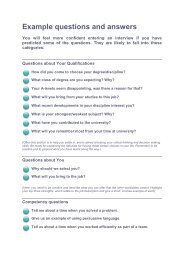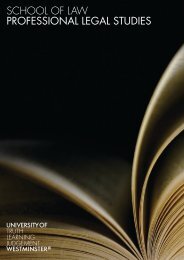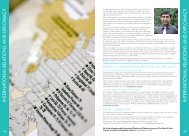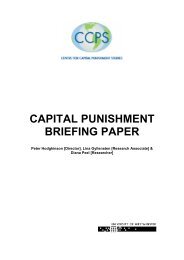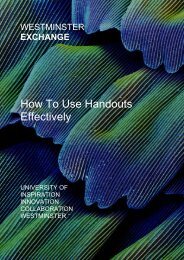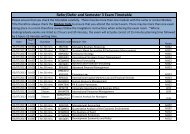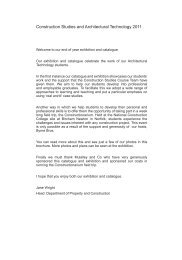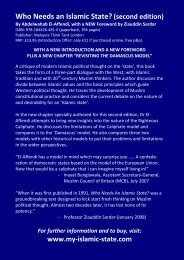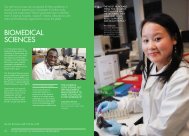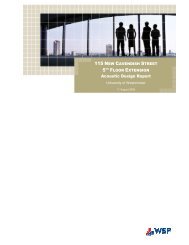Social Science, Rhetoric and Chomsky's Critique - Alison Edgley
Social Science, Rhetoric and Chomsky's Critique - Alison Edgley
Social Science, Rhetoric and Chomsky's Critique - Alison Edgley
You also want an ePaper? Increase the reach of your titles
YUMPU automatically turns print PDFs into web optimized ePapers that Google loves.
Westminster Papers in Communication <strong>and</strong> Culture 6(2)Note here his words: ‘I would like to believe’. This is Chomsky the man, notChomsky the social critic, not Chomsky as linguist, or whatever categorizing labelmight be put upon him. Chomsky would argue that any <strong>and</strong> all analyses of social<strong>and</strong> political institutions involve elements of ‘rhetoric’, because implicit in allaccounts are opinions about the links between human social organization <strong>and</strong>human nature which are, by definition, unverifiable. He doubts that there couldever be clinching scientific evidence to settle all the arguments we have about ourhumanness. He is also sceptical that we will ever have the capacity to introspect tothe extent that we can fully comprehend our nature. Just as the rat in the maze isonly wired to achieve a certain level of knowledge, humans are likely to remain amystery to themselves, at least in some respects. Without the assurances of averifiable account of human nature, Chomsky resorts to hope <strong>and</strong> refers toPascal’s wager:Pascal raised the question: How do you know whether God exists? He said, if Iassume that he exists <strong>and</strong> he does, I’ll make out OK. If he doesn’t, I won’t loseanything. If he does exist <strong>and</strong> I assume he doesn’t I may be in trouble. That’sbasically the logic. On this issue of human freedom, if you assume that there’sno hope, you guarantee that there will be no hope. If you assume that there is aninstinct for freedom, there are opportunities to change things, etc., there’s achance you may contribute to making a better world. That’s your choice.(Chomsky <strong>and</strong> Barsamian, 1992, 355)In the absence of definitive evidence, what does Chomsky do? He makes <strong>and</strong>st<strong>and</strong>s by his own moral choice. He chooses to be optimistic, to see humans ashaving a naturally creative urge <strong>and</strong> therefore a need to control their life <strong>and</strong>labour. Cautiously <strong>and</strong> modestly, he concedes only a loose connection between hispolitical work <strong>and</strong> his work in linguistics. Just as humans are wired for rule-boundbut creative linguistic activity, so Chomsky prefers to believe that we have aninstinct for liberty <strong>and</strong> creativity. On the basis of his choice of assumptions, itfollows for him that humans need to work productively under conditions of theirown choosing <strong>and</strong> in voluntary association with others.My own hopes <strong>and</strong> intuitions are that self-fulfilling <strong>and</strong> creative work is afundamental human need, <strong>and</strong> that the pleasures of a challenge met, a work welldone, the exercise of skill <strong>and</strong> craftsmanship, are real <strong>and</strong> significant, <strong>and</strong> are anessential part of a full <strong>and</strong> meaningful life. The same is true of opportunity tounderst<strong>and</strong> <strong>and</strong> enjoy the achievements of others, which often go beyond whatwe ourselves can do, <strong>and</strong> to work constructively in cooperation with others.(Chomsky, 1988a, 394)From this view of a universal human nature, Chomsky argues for a society thatpromotes diversity (not homogeneity). And although he is clearly emphasizing theimportance of agency in social <strong>and</strong> political processes, he is nevertheless clear that34


